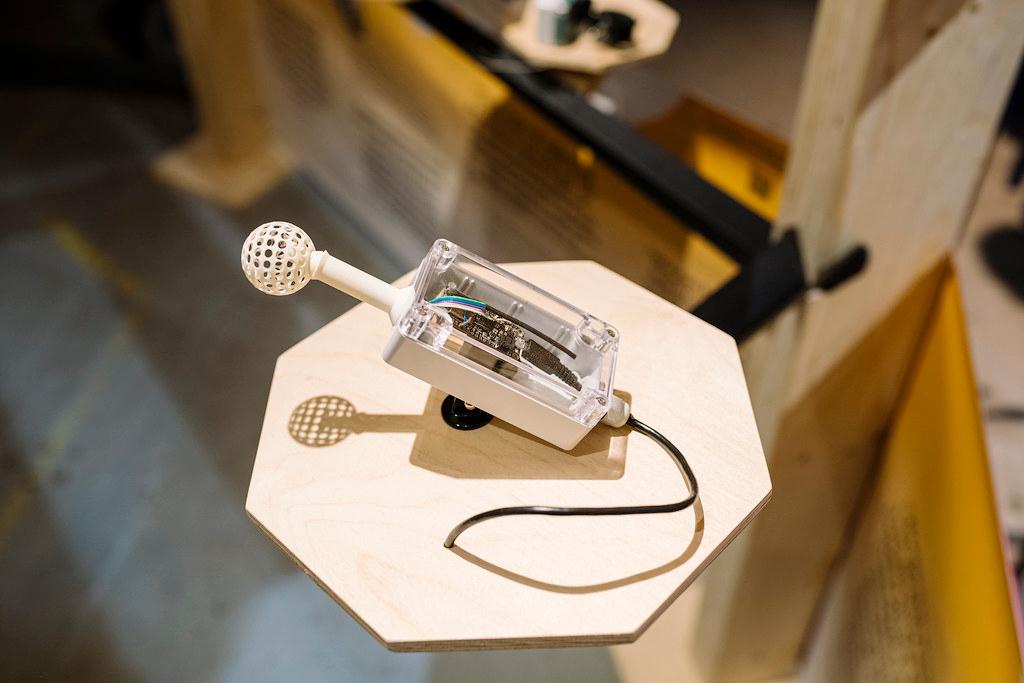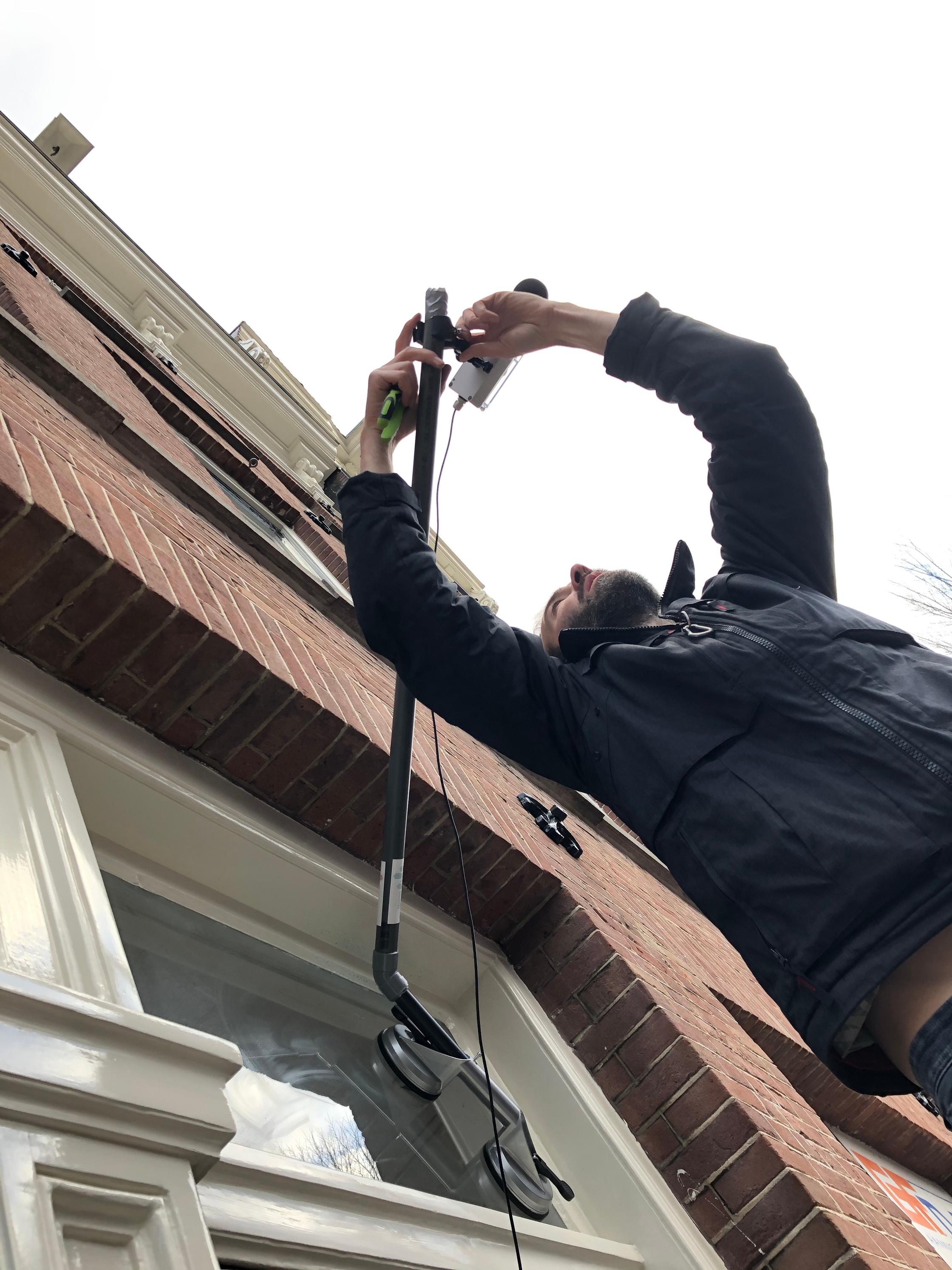In RIVM's recently published study on the reliability of home-built sound meters, Waag Futurelab comes out on top. The open-source sound meter - the Amsterdam Sounds kit - which Waag developed in the Amsterdam Sounds project, proved the most reliable and stable after extensive testing. Self-built meters allow residents to measure noise themselves and map their nuisance. Reliability of the meter is important, because the more reliable the data, the stronger residents are in the conversation about noise nuisance.
Reliable sound: Amsterdam Sounds kit as best in test!
RIVM conducted research into the quality of home-made noise meters. For six months, it tested seven different sound meters in practice, including Waag Futurelab's Amsterdam Sound kit. The results of the meters were compared to a class 1 sound meter: a sound meter that measures very accurately and has to meet strict requirements. The measurements of the Amsterdam Sounds kit were closest to those of the class-1 sound meter.
Waag 1 [Amsterdam sound kit] followed the Cube Class-I sound meter the best of all the meters in the test. - RIVM
Besides accuracy, the kit was rated positively for stability: after four months, the measurements were still good. Weather influences have relatively little effect on the measurements. RIVM describes the measurements of the Amsterdam Sounds kit as "accurate and constant".
Information on noise is often calculated by official bodies over longer time periods, such as annual averages. But residents often experience nuisance locally and during short moments, such as from an aircraft flying overhead. With self-built sound meters, residents can measure noise themselves and map the nuisance that they experience. Reliability of the meter is important, because the more reliable the data, the stronger citizens are in the conversation about noise pollution. RIVM published their test results, so that citizens can see how the meters performed. Citizens can use these test results to improve parts of the home-built sensors.
Would you like to start measuring sound? Build the Amsterdam Sounds kit yourself.
The Smart Citizen Lab
Noise pollution, air quality, water quality, gamma radiation and more: Waag Futurelab works with the Smart Citizens Lab on projects that allow residents to measure their surroundings and collect data. The method, citizen sensing, gives citizens a more informed position in discussions about the quality of their living environment. Besides the Amsterdam Sounds kit, Waag's Smart Citizen Lab also developed other sensors to measure the environment such as the particulate matter meter (the HoLu kit) and the gamma radiation meter (GammaSense sensor kit).
Are you interested in collaborating with the Smart Citizen Lab? Contact Imme [at] waag [dot] org.


